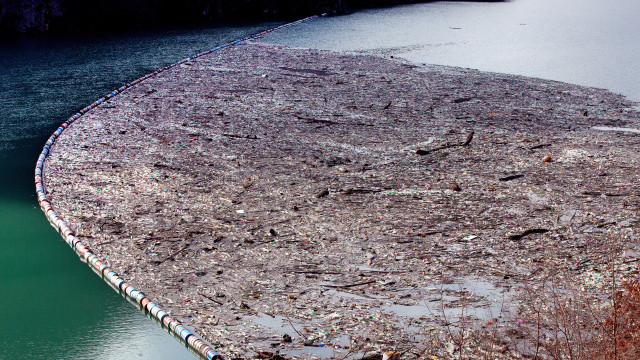By mid-century, water shortages could affect three billion more people than previously thought, and increased pollution will make river sources "dangerous" for people and wildlife, researchers have warned.
The UN's climate science panel said around half the world's population now faces severe water shortages for at least one month of the year, and warned that the impact of global warming and rising demand are the main risks to global supplies.
But new research by scientists in Germany and the Netherlands found that when harmful nitrogen pollution is taken into account, the number of areas with water shortages increases dramatically.
"In general, people are more worried about water scarcity - whether you have enough water," said lead author Mengru Wang of Wageningen University & Research.
"But I also see that water pollution is really becoming an increasingly important problem that makes water unsafe for use by nature and people," he added.
Human activities discharge large amounts of nitrogen, pathogens, chemicals and plastics into aquatic systems.
Nitrogen, particularly from agricultural fertilizers, contributes to the growth of algae, which can choke waterways, endanger marine life and degrade water quality.
The new study, published in the journal Nature Communications, analyzed river basins around the world that are major sources of drinking water and centers of urban and economic activity.
According to the authors' computer modelling, the number of sub-basins - smaller units within river basins - facing severe water shortages was twice as high as previously thought in 2010, and could worsen significantly in the coming decades.
They calculated that in 2010, 2,517 sub-basins worldwide faced water scarcity when the impact of nitrogen pollution on water quality was taken into account, compared to only 984 according to traditional quantity-based estimates.
That figure could rise to 3,061 by 2050, they found, which would affect roughly 6.8-7.8 billion people — or about three billion more than conventional estimates.
Co-author Benjamin Bodirski, a senior research fellow at the Potsdam Institute for Climate Impact Research, said the modeling of three different scenarios that affect pollution levels shows that "we have choices and we can improve the situation."
But he said that even under the most optimistic estimates, nitrogen pollution would remain at "significant levels" in important agricultural areas such as Europe, China and India.
"Deteriorating access to water can be halted, and to some extent even reversed, by adopting more efficient use of fertilizers as well as more vegetarian diets, and by connecting more of the world's population to wastewater treatment plants. facilities," Bodirski said. /BGNES
Pollution risks exacerbating global water scarcity



.jpg)
.jpeg)


